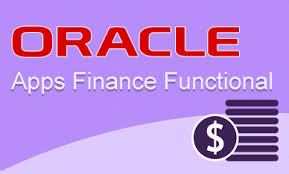Oracle Apps Finance Training in Chennai
Learn Oracle Apps Finance Training In Chennai At GREENS TECHNOLOGY – No 1 Oracle Apps Finance Training Institute In Chennai. Call @ 9080125737 For More Details. Register today for learning basic Oracle Apps Finance Training to go for advanced Oracle Apps Finance Training in Chennai.
Oracle Apps Finance Training in Chennai

Oracle's E-Business Suite (also known as Applications/Apps or EB-Suite/EBS) Oracle Apps Finance Training in Chennai topics taught by experienced Oracle Financials R12 Functional Consultant with extensive real-world end-to-end experience of the Oracle E Business Suite Release 12 implementation and support life-cycle from diverse projects in the India, Dubai, UK, Europe & Canada.
Greens Technologies, The Best Oracle Apps Finance Functional R12 Training institute in Chennai provides complete hands on training in Oracle EBS Finance modules (AP, AR, GL, FA, CM) with Certification and Job Placements.
Get Trained at GREENS TECHNOLOGY and become a ORACLE Guru!
ORACLE APPS FINANCE TRAINING COURSE CONTENT
Oracle Apps R12 Finance Functional Training Modules
- Use key E-Business Suite tools
- Understand Oracle General Ledger tables, ERDs, and business functions
- Understand Oracle Inventory tables and business functions
- Describe the Oracle Financial applications
- Understand Oracle Purchasing tables and business functions
- Understand Oracle Payables tables, ERDs, and business functions
- Understand Oracle Assets tables, ERDs, and business functions
- Understand Oracle Trading Community Architecture tables, ERDs, and business functions
- Understand Oracle Order Management tables, ERDs, and business functions
- Understand Oracle Receivables tables, ERDs, and business functions
- Describe the Oracle Applications Open Interface Model
- Understand Oracle Subledger Accounting
Oracle Apps R12 Finance Functional Training Modules
- Oracle E Business Suite Essentials
- Accounts Payables Module
- Accounts Receivable Module.
- Cash Management Module.
- Fixed Assets Module.
- General Ledger Module.
Oracle Apps R12 Finance Functional Training Modules
- 1Z0-516 Oracle EBS R12.1 General Ledger Essentials
- 1Z0-517 Oracle EBS R12.1 Payables Essentials
- 1Z0-518 Oracle EBS R12.1 Receivables Essentials
R12.x Oracle Financial Applications Training Overview
In this Oracle Apps Finance Training course in Chennai, you will learn the basics of the Oracle Financial Applications, to include General Ledger, Purchasing, Payables, Fixed Assets, Order Management, Accounts Receivables, Cash Management, and Projects. Also, students will learn concepts that are included across these applications such as Suppliers, Customers, and Items. In addition to learning about these products, you learn how they work together in different flows to suit your business needs. Business flows include Procure to Pay and Order to Cash Flow. You will also be able to try many of these products in class using a series of hands on practices, which build on one another thus allowing you to experience both the tools and the workflow of which they are part.
This course will be applicable for customers who have implemented Oracle E-Business Suite Release 12 or Oracle E-Business Suite 12.1.
- Understand the Business Flows of the eBusiness Suite
- Understand Oracle Procurement Flows and Products
- Understand Oracle General Ledger
- Understand Oracle Payables and Receivables
- Understand Oracle Order Management
- Understand Oracle Assets
Oracle Applications Financial Functional Training Course Details
Here are the Oracle Applications Financial Modules covers in our Training Course
E-BUSINESS ESSENTIALS
- Navigating in R12 Oracle Applications
- Log in to Oracle Applications
- Navigate from Personal Home Page to Applications
- Choose a responsibility
- Create Favorites and set Preferences
- Use Forms and Menus
- Enter data using Forms
- Search for data using Forms
- Access online Help
- Run and monitor Reports and Programs
- Log out of Oracle Applications
Introduction to Oracle Applications R12
- Explain the footprint of R12 E-Business Suite
- Describe the benefits of R12 E-Business Suite
- Describe R12 E-Business Suite architecture
- Shared Entities and Integration
- Explain shared entities within R12 E-Business Suite
- Describe key integration points and business flows between products in E-Business Suite (EBS)
- Identify Key Business Flows and products involved in E-Business Suite (EBS)
Fundamentals of Flexfields
- Describe Flexfields and their components
- Identify the steps to implement a Flexfield
- Define value sets and values
- Define Key Flexfields
- Define Descriptive Flexfields
Fundamentals of Multi-Org
- Define Multiple Organization (Multi-Org)
- Describe the types of organizations supported in the Multi-Org model
- Explain the entities of Multi-Org
- Explain how Multi-Org secures data
- Identify key implementation considerations for Multi-Org
- Define Multi-Org Access Control
- Explain Multi-Org preferences
- Explain Enhanced Multiple-Organization Reporting
- Explain the concepts of subledger accounting
Fundamentals of Workflow and Alerts
- Explain Workflow concepts
- Describe the benefits of Workflow
GENERAL LEDGER
Oracle General Ledger Process
- Identify the steps required to complete the accounting cycle using Oracle General Ledger
- Describe how Oracle General Ledger integrates with other Oracle eBusiness applications
- Describe the integration of Oracle General Ledger with Oracle Subledgers & non-Oracle systems
- Explain implementation considerations for setting up and using Oracle General Ledger and Oracle eBusiness Suite
- Describe an overview of Accounting Setup Manager, currency concepts, budgeting, EPB, reporting & analysis
Basic Journal Entries
- Describe how journal entries are positioned in the accounting cycle
- Describe the different Journal Posting options
- Define how to perform Account Inquiries & Drilldown to Oracle Subledger Applications
- Import journal entry information using the GL_INTERFACE table
- Plan the key elements of Web Applications Desktop Integrator (Web ADI)
- Define Web ADI setup options for key flexfields
- Utilize Web ADI profile options, forms functions, menus, and responsibilities
Advanced Security
- Manage Data Access Security for Legal Entities and Ledgers
- Explain key Advanced Security setups and process
- Manage Data Access Sets
- Control security of Management Reporting
Multi-Currency
- Explain Multi-Currency concepts
- Use Currency Rate Manager
- Perform Foreign currency journals Entry
- Perform Revaluation of foreign currency balances
- Translate functional balances into foreign currency
- Describe overview of Secondary Tracking Segment
- Use Foreign Currency Reports
Financial Reporting
- Explain the positioning of Financial Reporting within the Oracle General Ledger business flow
- Build basic reports
- Use key elements of the Financial Statement Generator (FSG) for creating financial reports
- Use Standard listing reports available for FSG report definitions
- Create FSG Reports with XML Publisher
- Use Web ADI for Financial Reporting
- Explain key implementation issues regarding Oracle General Ledger financial reporting
Accounting Setup Manager
- Describe the components of Ledger Processing options
- Describe Secondary Ledgers & Reporting Currencies
- Describe Accounting Setup considerations with one legal entity
- Describe Accounting Setup considerations with multiple legal entities
- Describe Accounting Setup considerations with no legal entities
Accounting Setups
- Create Accounting Setups
- Describe the various Subledger Accounting Options
- Perform the Primary Ledger Setup steps
- Describe Ledger Balancing Segment Value Assignments
- Perform the Secondary Ledger Setup steps
- Complete Accounting Setup
Advanced Journal Entries
- Create Recurring Journals
- Formulate Mass Allocation Journals
- Describe AutoAllocations and related implementation considerations
- Explain AutoScheduling
- Describe the Journal Scheduling process
- Describe key issues and considerations when implementing Advanced Journal Entry
- Describe the business benefits of using Oracle General Ledger's Advanced Journal Entry functions
Consolidations
- Explain overview of Consolidations and their positioning within the Oracle General Ledger business flow
- Identify the key implementation issues regarding consolidations
- Use the features and functionality of Global Consolidation System (GCS)
- Use the elements of the Consolidation Workbench
- Create eliminating entries
- Use Standard reports and inquiry options available for consolidations Ledger
- Describe the elements required to create a ledger within Oracle General Ledger
- Describe the basic components of Accounting Setup
- Describe the important elements for creating a Chart of Accounts structure
- Creating a new Accounting Flexfield structure
- Utilize the Account Hierarchy Manager to view and maintain Accounting Flexfield values
Summary Accounts
- Explain summary accounts and how they are used in General Ledger
- Define How Parent Values/ Rollup Groups are used in General Ledger
- Determine how Summary Templates are used
- Use Budgetary Control & maintain Summary accounts
- Plan and maintain Summary Account structures
SFin ancial Budgeting
- Explain the anatomy of a budget
- Explain the components of budget accounting cycle
- Define budget and budget organization
- Explain Budget Entry methods
- Apply Budget Rules
- Transfer budget amounts
- Perform budget review and correction
- Translate budget balances
- Review balances in Master/Detail budgets
- Create budgets with Budget Wizards
- Use available Standard budget reports
- Plan Budget implementation requirements
Period Close
- Explain the accounting cycle
- Perform key steps in the close process
- Perform journal import of subledger balances
- Perform Subledger Reconciliation
- Explain the Period Closing Process and Reports
- Consolidate account balances
Oracle EBS R12.1 Accounts Payables
Procure to Pay Overview
- Describe the procure-to-pay process flow
- Describe the key areas in the procure-to-pay process
- Describe how the procure-to-pay process fits into the Oracle E-Business Suite of applications
Transaction Taxes in Payables
- Compute transaction taxes for invoices
- Insert manual tax lines and update transaction tax lines
- View tax summary and details
- Identify key reports related to transaction taxes
- Describe setup options in EB Tax & Payables
- Describe transaction taxes in Payables
- Describe treatment of different types of taxes (offset tax, recoverable tax, tax on prepayment, and others)
Withholding Tax
- Identify the withholding tax process
- Use withholding tax options
- Process manual withholding tax invoices
- Create withholding tax on Standard Invoices, Recurring Invoices and Application of Prepayment
- Process automatic withholding tax invoices
Advances and Progressive Contract Financing
- Describe the purpose of complex service contracts
- Identify advances, contract financing and progress payment invoices
- Calculate retainage
- Recoup prepaided amounts for complex service contract
- Calculate tax
Payables Overview
- Describe the Payables process flow
- Describe the key areas in the Payables process
- Identify Payables integration points
- Identify open interfaces to import data into Payables
- Set up and use Multiple Organization Access Controls (MOAC)
Suppliers
- Define suppliers and supplier sites
- Identify key reports related to suppliers and supplier sites
- Describe setup options - Purchasing
- Describe additional implementation considerations related to suppliers
- Describe setup options - Receiving
- Describe setup options - Others
Payments
- Describe the payment process
- Set up banks and bank accounts
- Enter single payments
- Process multiple payments
- Review and adjust payments
- Set up and create bills payable
- Create, apply, and release holds on prepayments
- Reconcile payments with Oracle Cash Management
- Use key standard reports
- Describe key setup options
- Describe additional implementation considerations related to payments
- Describe Payment Manager
Invoices
- Import/Enter invoices and invoice distributions
- Match to purchase orders
- Validate invoices
- Apply and release holds
- Describe invoice approval workflow
- Describe key reports
- Describe setup options
- Describe additional implementation considerations related to invoices
Expense Reports and Credit Cards
- Process various types of expense report
- Enter expense report templates
- Enter expense reports
- Apply advances
- Process procurement cards and credit cards
Period Close
- Describe activities to be performed during the Period Close process in Payables and Purchasing
- Reconcile accounts payable transactions for the period
- Identify key programs and reports related to Period Close
- Describe setup options related to Period Close
- Describe additional implementation considerations related to Period Close
- Explain the prerequisites for the Period Close process
- Transfer from Payables to General Ledger
Oracle EBS R12.1 Accounts Receivables
Process Invoices Using AutoInvoice
- Describe the AutoInvoice process
- Use AutoInvoice
- Understand error correction using AutoInvoice Exception Handling
Bill Presentment Architecture
- Explain bill presentment architecture processes
- Register data sources
- Create templates to present bills
- Define rules to assign templates to customers
- Print BPA transactions
Receipts
- Describe the receipt process
- Apply receipts using different methods
- Create chargebacks, adjustments and claims
- Use balancing segments
- Apply non-manual receipts
- Create receipts utilizing different methods
Period Closing Process
- Describe the sub ledger accounting process in Receivables
- Define the various actions required to close a period in the Order to Cash flow
- Describe the available reports to assist in the closing process
- Explain the Create Accounting program and the Revenue Recognition program
Order to Cash Lifecycle Overview
- Describe the overall Order to Cash process from Order Entry through Bank Reconciliation
- Discuss the key areas in the Order to Cash lifecycle
- Describe integration betwee n applications
Manage Parties and Customer Accounts
- Define the features that let you enter and maintain party and customer account information
- Create profile classes and assign them to customer accounts
- Create and maintain party and customer account information
- Merge parties and customer accounts
- Enable customer account relationships
- Define TCA party paying relationships
- View party and customer account information
- Define setup options
Credit Management
- Set up for credit management
- Demonstrate credit profile changes
- Identify credit management processing
- Use workflow and lookups
- Review credit management performance
- Apply credit hierarchy
Implement Receipts
- Enter setup information relating to receipts
- Discuss implementation considerations for Receipts
Overview of Oracle Receivables Process
- Explain where the Receivables process is positioned within the Order to Cash lifecycle
- Describe the overall Receivables process
- Explain the key areas in the Receivables process
- Identify open interfaces to import data into Receivables
Process Invoices
- Describe how the processing of invoices fits into the Receivables process
- Enter and complete invoices
- Perform other invoice actions
- Correct invoices
- Print transactions and statements
- Use event-based management
Implement Customer Invoicing
- Enter setup information related to invoicing
- Discuss the major implementation considerations for customer invoicing
Tax Processing
- Understand the E-Business Tax and Receivables Tax Process
- Define Receivables Setup Steps for Tax
- Manage Tax Accounting and Tax Adjustments
Oracle EBS R12.1 Cash Management
Cash Management
- Overview of Oracle Cash Management
- Process Flow
- Bank Reconciliation Process
- Set up Accounts Payable
- Define a Payment Bank
- Reports
Fixed Assets
- Assets Architecture
- Fixed assets integration
- Depreciation
- Depreciation Methods
- Categories
- Retirements
- Asset conversion
You can contact us @ 9080125737 or fill in the enquiry form to get detailed information about Oracle Apps Finance training in Chennai. Join Greens Technology for Best Oracle Apps Finance training in Chennai.





